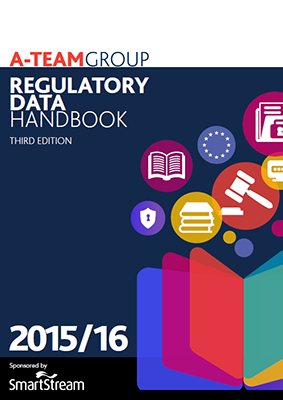RegTech Insight Regulations The latest content from across the platform
MiFID II: Practical Considerations for Gainful Compliance
The EU’s Markets in Financial Instruments Directive (MiFID) II – which applies from January 2018 – aims to extend the market transparency introduced by its predecessor regulation to new areas of the marketplace. In many cases, MiFID II will be more granular, more prescriptive and more onerous than MiFID I, raising business and technology challenges…
European Insurers Struggle to Meet January 2016 Solvency II Compliance Deadline
As the January 1, 2016 deadline for Solvency II approaches, insurers across Europe are struggling to complete compliance programmes that have been held up by delays in one area causing knock-on effects in others and by slow regulatory approval of internal models for capital requirements that has left little time to work with asset managers…
MarkLogic and ModelDR Propose a BCBS 239 Compliance Solution Based on Data Point Modelling
MarkLogic and ModelDR are challenging traditional approaches to BCBS 239 compliance with a solution that combines MarkLogic’s non-relational, multiple model database platform and ModelDR’s data point modelling software. The companies detailed their approach in a recent webinar, Sustained Compliance with BCBS 239, and said banks implementing the solution could lower costs, increase agility and ensure…
Perseus Acknowledges MiFID II Time Synchronisation Standards as Fair and Reasonable
Changes made to recommendations on time synchronisation in the European Securities and Markets Authority’s (ESMA) latest technical standards for MiFID II have been welcomed by Perseus, a provider of managed services including PrecisionSync time services, and recognised as being fair and reasonable. While previous ESMA recommendations suggested nanosecond clock synchronisation for electronic trading, the standards…
MiFID II and What It Means for Trading in Europe
By Zoe Schiff If you thought MiFID II was a topic confined to the harried people of the EU, think again. Concerned New Yorkers packed a breakfast briefing earlier this month to hear how the far-reaching regulation will impact the European trading landscape – and open opportunities for US traders to broaden their horizons. They…
Thomson Reuters Eases Burden of Regulatory Shareholding Disclosures
Thomson Reuters has added significant shareholder and beneficial ownership data to its DataScope Select reference data platform in support of asset managers that must comply with regulations covering the disclosure of holdings in sensitive industries and holdings that exceed a percentage threshold of the outstanding capital of a company. The global regulations covering these disclosures…
Trade Europe Now
This paper has been written to provide a guide to effective electronic trading in Europe. It offers an overview of current state of play in the European market as well as dispelling myths surrounding MIFID II. It examines what elements are needed to effectively trade Europe, specifically looking at selecting the right physical point of…
Questions Remain About Using ISINs as Instrument Identifiers for MiFID II and MiFIR
By Chris Pickles, Co-Chair of FIX Trading Community’s Reference Data Subgroup and Member of the Bloomberg Open Symbology Team The work of the Reference Data Subgroup of the FIX Trading Community starts again this week after the hiatus of waiting for the final recommendations of ESMA regarding Technical Specifications for MiFID II/MiFIR compliance. As these…
Global LEI Foundation Swings into Action After Taking Operational Control of the Global LEI System
The Global Legal Entity Identifier Foundation (GLEIF) has become the central operating unit of the Global LEI System (GLEIS), ending the interim system overseen and coordinated by the Regulatory Oversight Committee (ROC) of the LEI and setting in motion activities including an accreditation process for pre-Local Operating Units (LOUs), a quality management programme, and expansion…
Regulatory Data Handbook – Third Edition
Need to know all the essentials about the regulations impacting data management? Welcome to the third edition of our A-Team Regulatory Data Handbook which provides all the essentials about regulations impacting data management. A-Team’s series of Regulatory Data Handbooks are a great way to see at-a-glance: All the regulations that are impacting data management today…




